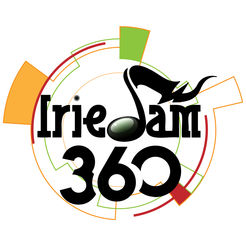
No ISIS link
Police say ‘Wangiri’ phone scam not a push by international terrorist group
By Shanica Blair Online report
The police have dismissed speculations of a possible nexus between ISIS and the ‘Wangiri Phone Scam’, which resulted in hundreds of Jamaicans receiving missed calls from the +48 area code, originating in Poland, over the weekend.
Assistant Commissioner of Police (ACP) Clifford Chambers of the Counter-Terrorism and Organised Crime Branch (C-TOC), in a telephone interview yesterday, told the Jamaica Observer that his office was in communication with international counterparts EUROPOL and INTERPOL in trying to put a cap on the telecommunication scam.
The senior police officer was responding to concerns that the terrorist group ISIS may be using the racket to also hack phones and steal contact lists and credit details in order to raise money.
Chambers said INTERPOL and EUROPOL have not provided any information to suggest a link to ISIS.
The scam, translated in Japanese as ‘one ring and cut’, literally means that the caller calls once and then hangs up. By leaving the missed call message on the user’s phone, the scammers hope that the users will call back. when they do, they pocket the revenue from the call. This fraud was said to have originated in Japan and has caused millions of dollars in losses globally.
ACP Chambers also said that the racket has no link with any local personnel or company on the island, adding that he was unable to say why they are targeting Jamaica at this time.
In the meantime, he said the C-TOC Branch cannot give a figure as it relates to the number of people who have received ‘Wangiri’, calls but he encouraged Jamaicans who have received calls to provide information to their cyber lab for further analysis and case building.
With the information received, he said that the branch will work with and through INTERPOL and EUROPOL in trying to put a cap on this emerging scam before it gets out of hand.
Chambers, meanwhile, said that so far there has been no report of anyone being negatively affected.
He explained that the Ministry of Technology as well as local telecommunications providers were probing the matter as well.
Minister of Science, Energy and Technology Dr Andrew Wheatley, in a release late yesterday afternoon, urged Jamaicans to be vigilant and protect their information in light of the scam.
“We are encouraging users to stay vigilant and ignore any calls from unexpected/unfamiliar country codes. Let these calls go to voicemail and DO NOT call the numbers back.
“If you answer inadvertently, DO NOT follow the instructions given and hang up quickly. Please also ensure that you set a password on your phone, laptop, or tablet and keep them locked when not in use,” Wheatley said.
Other tips to ensure data security, provided by the ministry, include setting passwords that are hard to guess and keeping passwords and PINs protected as well as setting up passwords or PINs so only you can access your voicemail.
Wheatley also implored Jamaicans who receive these calls and think they may be a victim to contact the ministry’s Cyber Incident Response Team at 247-1112/702-5210, their telephone service provider, or the local police.
Digicel, whose customers seemed to have been most affected, said Sunday that it has been blocking some overseas calls from numbers it believes are involved in the scam.
FLOW, meanwhile, said the company was aware of the latest phone scam; however, it has not received any reports from any of its customers. The company said it had already activated its fraud team and would be blocking those numbers which are found to be involved in this scam.
The purpose of Wangiri calls is to get people to call back the number displayed on the phone screen. People often see the missed call and believe that a legitimate call was cut off, or are simply curious as to who called, so they dial the missed number. The number turns out to be a premium rate number, advertising anything from free prizes to sex services.
In April, New Zealand’s Newshub reported that New Zealanders had been receiving such calls from Chad, Zambia and Poland. In June, Guam also reported similar experiences with phone calls from Tonga, and Johannesburg, South Africa, reported being affected by the calls in March.





















